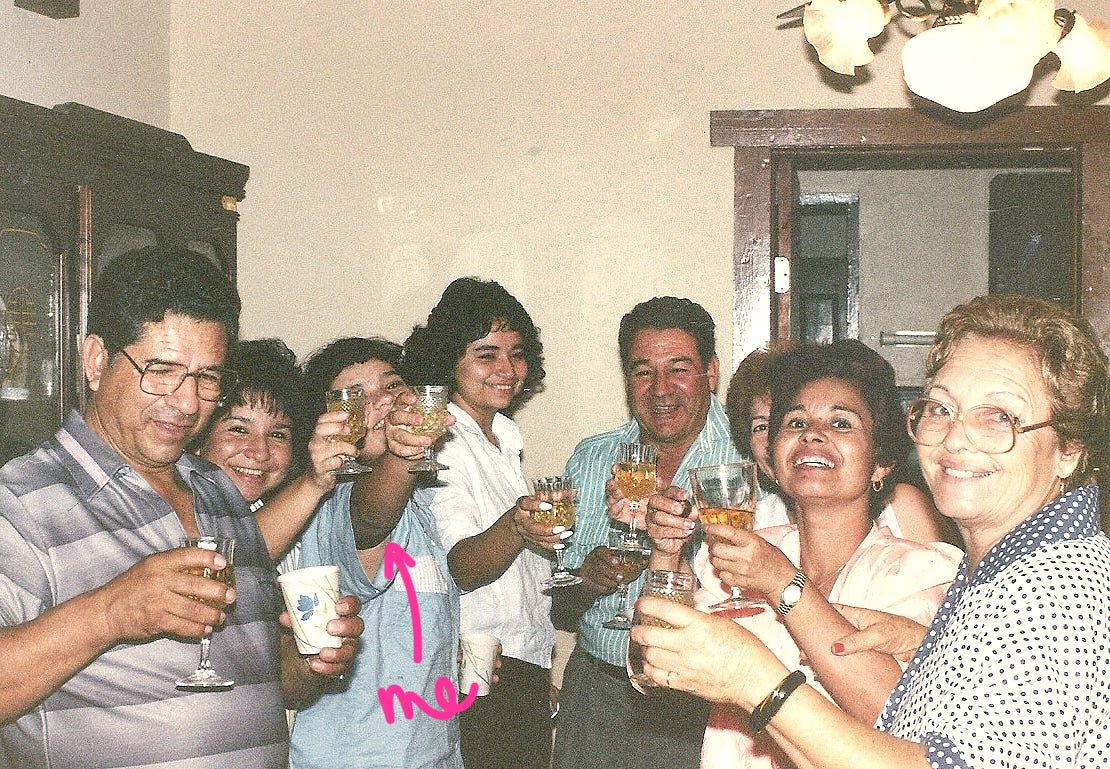
Growing up Hispanic meant that, like Christmas, New Year's was not celebrated in a traditionally American way, especially when it came to traditions and rituals. As a Colombian born, growing up in a very Latino Miami, even New Year's traditions became a mosh of many Latin countries. As a kid, I often just scratched my head or rolled my eyes at the funny and cooky things my parents did on New Year's. Now as an adult, I must say, that I've kept many of the traditions, though some still have me scratching my head.
Latino New Year's Traditions That May Puzzle your Kids
Las 12 Uvas - The 12 Grapes
The Hispanic tradition of eating 12 grapes at midnight apparently comes from Spain. It is believed that if you eat 12 grapes it will bring prosperity for the New Year, each grape representing 1 of the 12 months. While Americans are busy sipping Champagne and giving kisses, many Latinos are busy downing their grapes. This tradition was an absolute must in our home, with my dad meticulously picking the most perfect grapes, as they represented prosperity and good luck for the new year. I will say, I still practice this tradition.
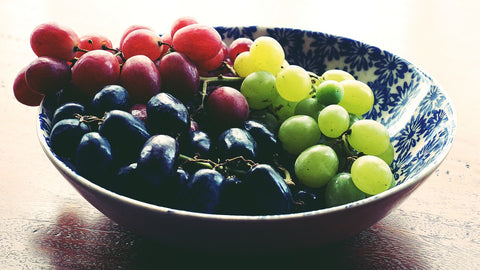
Los Calzones Amarillos o Rojos - The Yellow or Red Underwear
Now I'm not sure where this tradition comes from, but when I lived in Colombia and Miami, the local stores all had a surplus of yellow underwear for the New Year. It never failed that my mom would buy my sister and me yellow panties to ring in the new year. As we became adults, she told us that we could wear red to attract boyfriends. Oh and if wearing bright yellow panties wasn't enough, they had to be worn inside out! Um ok. While I can't say that you will find me wearing yellow underwear every New Years Eve, my mom still gifts them to us every Christmas, and I always get a kick out of it.

Los Baños - The Baths
Ever since I can remember, my dad has always taken special baths on New Year's Eve. Now, what do I mean by a special bath? A bath that will ward off evil spirits and negative energy and cleanse the body for the New Year. It may include plantas de ruda (rue plants), canela (cinnamon), and other plants. This is more of a ritual and is suggested for those that have had an especially difficult year so they can welcome the new year with a fresh start, good luck, and prosperity. As a kid, I just saw green concoctions that had me puzzled.

Walter Mercado - Latin Astrologer Extraordinaire
Growing up in Miami, Walter Mercado's televised predictions for the new year became not only a New Year's must-see, but it also became a funny family event. You see, Walter Mercado is this larger than life character that you can't help but imitate, "Sobre todo con mucho mucho amor" (above all with lots and lots of love),as you repeat one of his famous phrases while circling your hand over your heart. His predictions would have my family wondering what the next year would bring. As a child, all I wondered was why did he wear so much makeup, why did he wear a cape, and couldn't help but laugh at this whole show. It's been year's since I've seen a show, but it never fails on New Year's Day, my dad will send me an email with Walter's latest New Year predictions from El Nuevo Miami Herald.

La Limpieza de Año Viejo - The cleansing of the old year
In order to begin a fresh new year, one must clean, and I don't mean your typical everyday housekeeping. The cleansing of the old year means that sheets need to be changed, curtains washed, rugs shampooed, cars washed, laundry made, and no dirty dishes in the sink when the new year rings. My mom would clean from the day after Christmas Day until New Year's making sure that we started the new year fresh. It meant that we would enter the Año Nuevo with clean and refreshed energy. To this day, I do a massive end of year cleaning that drives my husband nuts. Well, he did marry a Latina! It's better to have a clean house than to be on an episode of Hoarders.

Con dinero en la mano - With Money in your hand
Some Latinos believe that if you want to be prosperous in the New Year you fold up a crisp bill (the higher value the better) and put it in your hand or a coin in your shoe. To start a New Year with money on hand is said to welcome a new year with economic prosperity. I can't remember who told my mom this, but it's now become a thing over the last few years. So, in addition to the 12 grapes you already have in your hand, you can add a $100 bill! Just don't accidentally eat the bill or stick to the coin in the shoe. I'm sure any kid would love any money in their hand New Year's or not.

Sacar las maletas - Take out the luggage
If you dream of traveling in the new year then take out your luggage and at the stroke of midnight go around the block or house. Yup. While we haven't had this tradition, I do remember our neighbor growing up taking her suitcase out and encouraging us to do the same. As a kid, it's so funny to see a grown-up acting like a crazy person with luggage in tow in the middle of the night. It's definitely a head-scratcher.

Quemar el muñeco de anõ viejo - Burn the doll
In Colombia, Ecuador, and other Latin countries they create these large muñecos (large stuffed dolls) that represent all of the bad of the year's past. These large dolls are stuffed with newspaper, dressed in people's clothes, and at the stroke of midnight are burned representing burning the old and welcoming the new. I was present once in Colombia during this spectacle which brings together everyone from el barrio. I was about 13 at the time, and I can say it was a bit crazy. I can't imagine they still do this in the big cities, my guess, more likely in the farmland.

Cinco para Las Doce - 5 Minutes to Midnight
Growing up Hispanic my dad would pull out this record, 5 Para las Doce and play a few minutes before midnight. Even as a kid, the words just seem to touch your heart, even if the record seemed outdated:
“Las campanas de la iglesia están sonando (The church bells are ringing), anunciando que el año viejo se va (announcing that the old year will pass),
la alegría del año nuevo viene ya (the happiness of the new year is coming),
los abrazos se confunden sin cesar (the mixed hugs are constant).
Faltan cinco pa´ las 12 (There are 5 minutes to midnight),
el año va a terminar (The year is going to end),
me voy corriendo a mi casa (I'm running home),
a abrazar a mi mamá” (to hug my mom).
Ok, so it loses a bit of translation in English, but it's a keeper in my book.
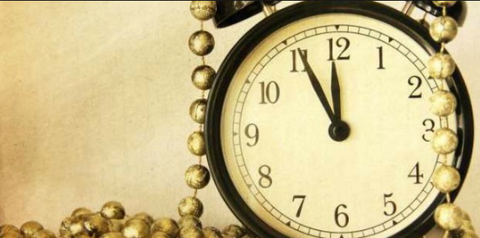
Vino Espumoso - Champagne
12 Grapes only go well paired with champagne and as a Hispanic kid, we too were allowed to toast and take a sip of champagne to welcome the New Year. At the stroke of midnight, Latinos are busy eating the grapes, taking a sip of champagne, giving hugs, kisses, and well wishes to friends and family because in a few minutes the real fiesta or parranda (party) will begin!

Final Thoughts on Latino New Year's Traditions
Traditions take us back in time to places, people, and feelings. Whether they remind us of abuela or our parents, our tio's parties, or dancing into the morning hours, traditions of starting a New Year surrounded by family and friends can warm anyone's heart. In my parent's case, December 31st is extra special because it is their wedding anniversary. For us, it has always symbolized family unity. We are reminded that although it may be the end of a year, it was a beginning for our family and that is always something to celebrate. This year they celebrate 50 years, Bodas de Oro. Felicidades mami y papi.

¡Feliz Año Nuevo!






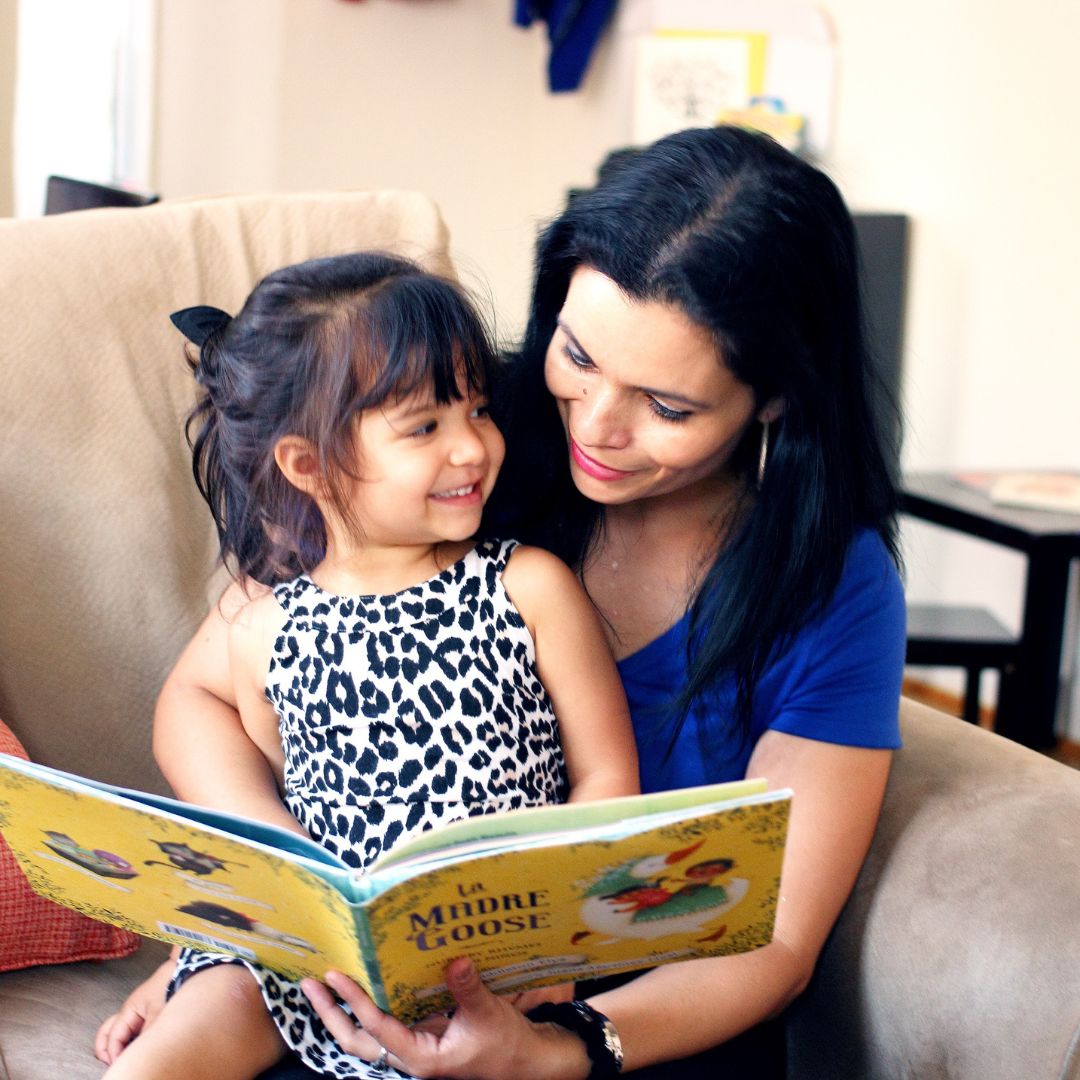





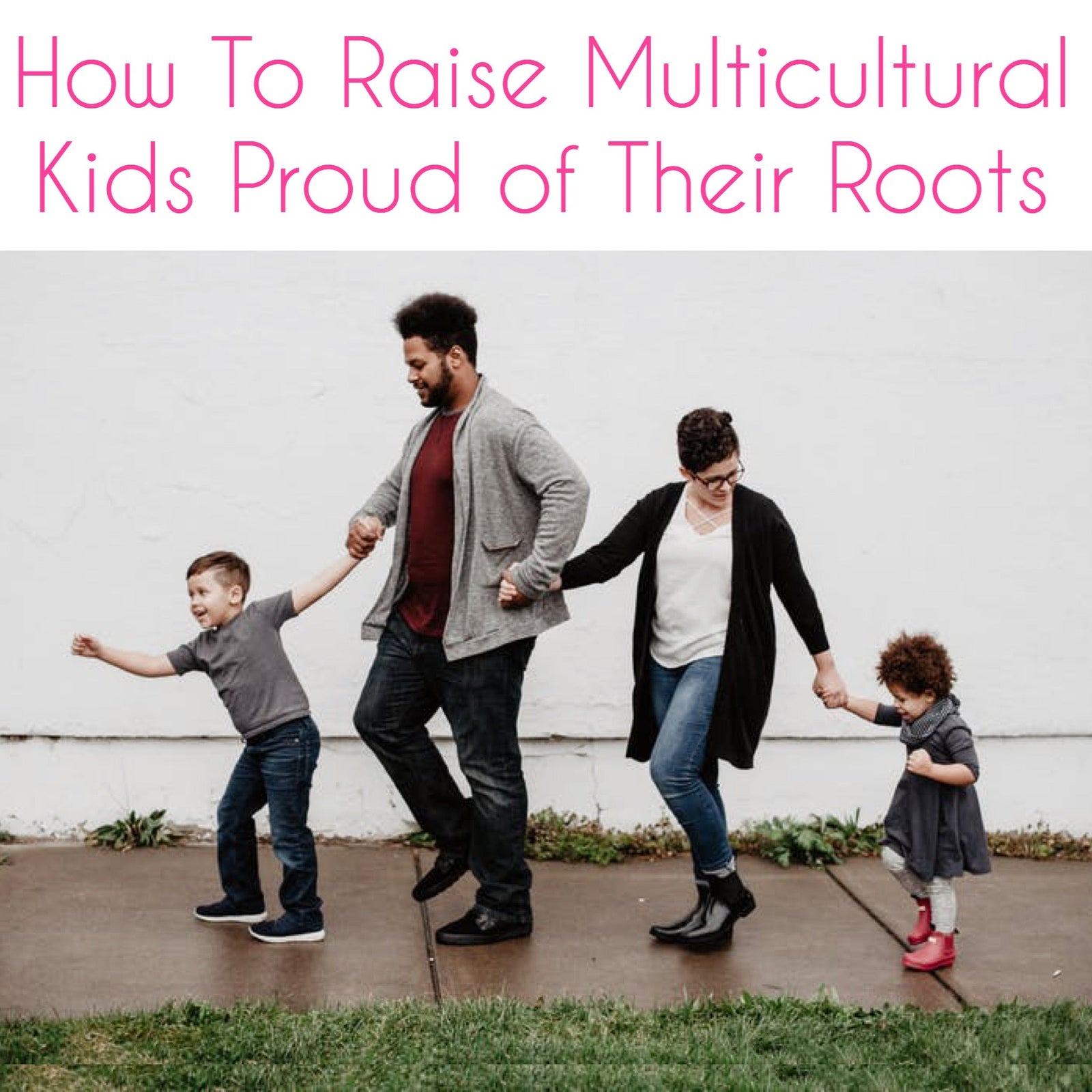





Leave a comment (all fields required)